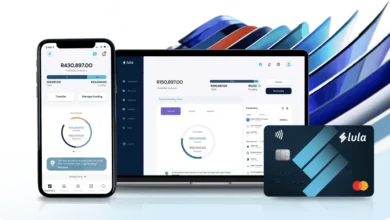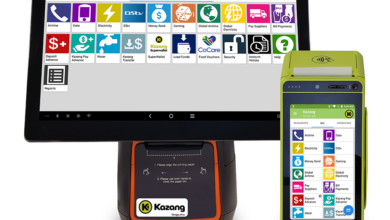Best Practices for Data Protection in Your South African Business

In an increasingly digital world, businesses in South Africa must prioritize data protection. With the implementation of the Protection of Personal Information Act (POPIA) and the global increase in cyber threats, safeguarding sensitive data is crucial for both compliance and business continuity. Below are best practices to help your South African business effectively manage and protect its data.
1. Understand and Comply with POPIA
The first step in protecting data in South Africa is understanding the legal requirements. The POPI Act governs how businesses should collect, process, store, and share personal information. Non-compliance can lead to severe penalties, including fines and reputational damage. Make sure your business has a POPIA compliance framework in place, covering data collection methods, storage protocols, and processing standards.
2. Implement Strong Access Controls
Restrict access to sensitive data within your organization. Only authorized personnel should have access to personal or critical business information. Use role-based access controls (RBAC) to ensure that employees only access the information necessary for their role. Regularly review and update permissions to avoid data exposure due to outdated roles or responsibilities.
3. Use Encryption
Encrypting sensitive data is one of the most effective ways to protect it. Data encryption ensures that even if your system is breached, unauthorized users cannot access the information. Whether data is at rest (stored on servers) or in transit (being sent over a network), encryption adds an essential layer of security.
4. Backup Your Data Regularly
A solid backup strategy is vital to ensure business continuity in the event of a cyberattack, hardware failure, or accidental data loss. Make regular backups of critical data and store these backups in secure, off-site locations, including the cloud. Ensure that backups are encrypted and that you have a clear disaster recovery plan to restore data efficiently when needed.
5. Adopt Multi-Factor Authentication (MFA)
Multi-Factor Authentication (MFA) requires users to provide multiple verification factors to access sensitive data or systems. This adds a second layer of protection beyond just passwords. MFA is crucial for reducing unauthorized access, especially when employees access company data remotely—a common practice in the era of hybrid working.
6. Educate and Train Employees
One of the most common causes of data breaches is human error. Your employees are your first line of defense when it comes to data protection. Regularly train them on data security practices, including recognizing phishing attacks, handling sensitive data, and using secure communication channels. Foster a culture of awareness where data protection is a priority for all staff members.
7. Conduct Regular Risk Assessments
It’s essential to identify potential vulnerabilities within your systems before cybercriminals do. Conduct regular risk assessments to evaluate your current security measures and identify areas for improvement. This includes evaluating software vulnerabilities, employee practices, and data storage systems.
8. Secure Your Network
Ensure that your business’s network is well-protected by implementing firewalls, secure Wi-Fi networks, and virtual private networks (VPNs) for remote access. Use intrusion detection and prevention systems (IDPS) to monitor traffic and detect any unauthorized access attempts. Additionally, segment your network to limit access between different areas, reducing the risk of widespread data breaches.
9. Update Software and Systems Regularly
Cybercriminals often exploit vulnerabilities in outdated software to gain access to company data. Regularly update your operating systems, applications, and security software to ensure that you are protected against known threats. This includes applying security patches and using up-to-date antivirus and anti-malware programs.
10. Monitor and Audit Data Activity
Regularly monitor and audit data activity to detect any unusual behavior that could indicate a security breach. Set up alerts for suspicious login attempts or unauthorized access to sensitive data. Implement data loss prevention (DLP) software to track and control data transfers, helping to ensure that sensitive information is not leaked or stolen.
Protecting data is a critical responsibility for businesses in South Africa, especially with the increasing sophistication of cyberattacks and the legal requirements of POPIA. By following these best practices, your business can reduce the risk of data breaches, safeguard sensitive information, and ensure compliance with South African regulations. Investing in data protection not only protects your business but also builds trust with customers and stakeholders.




